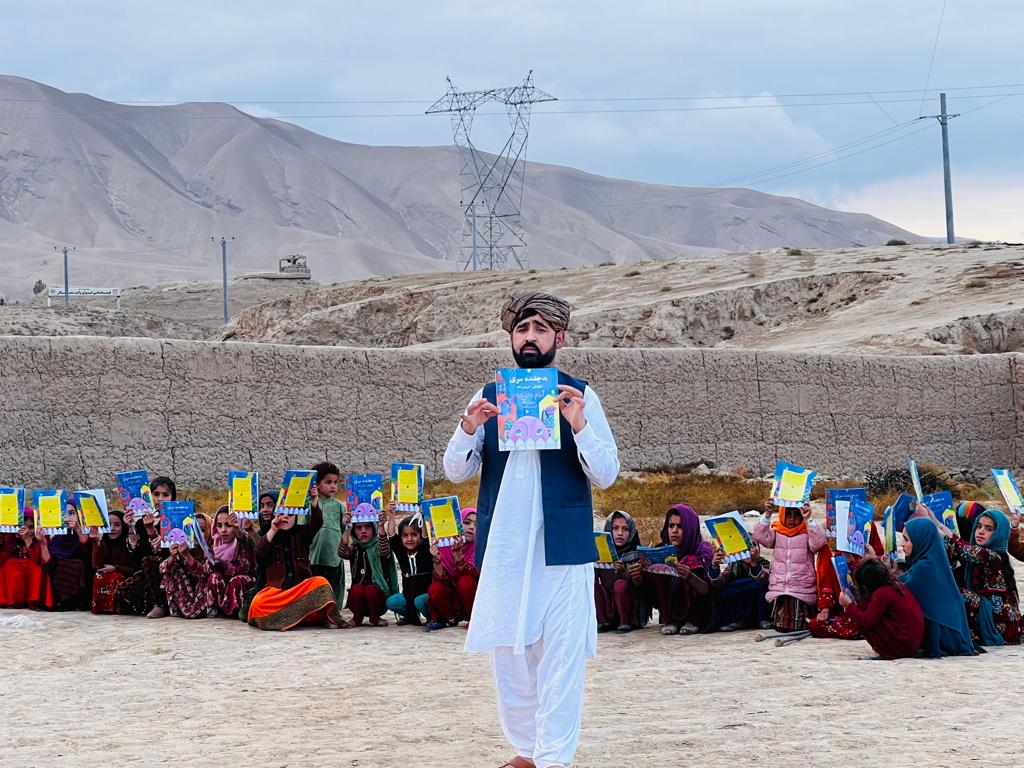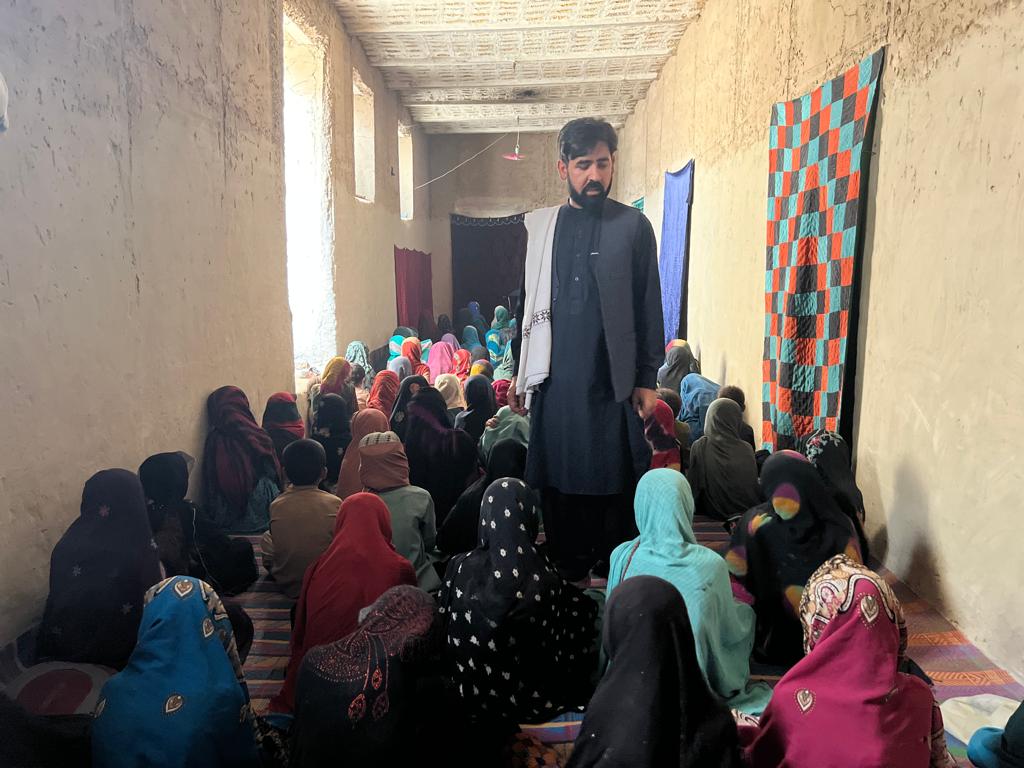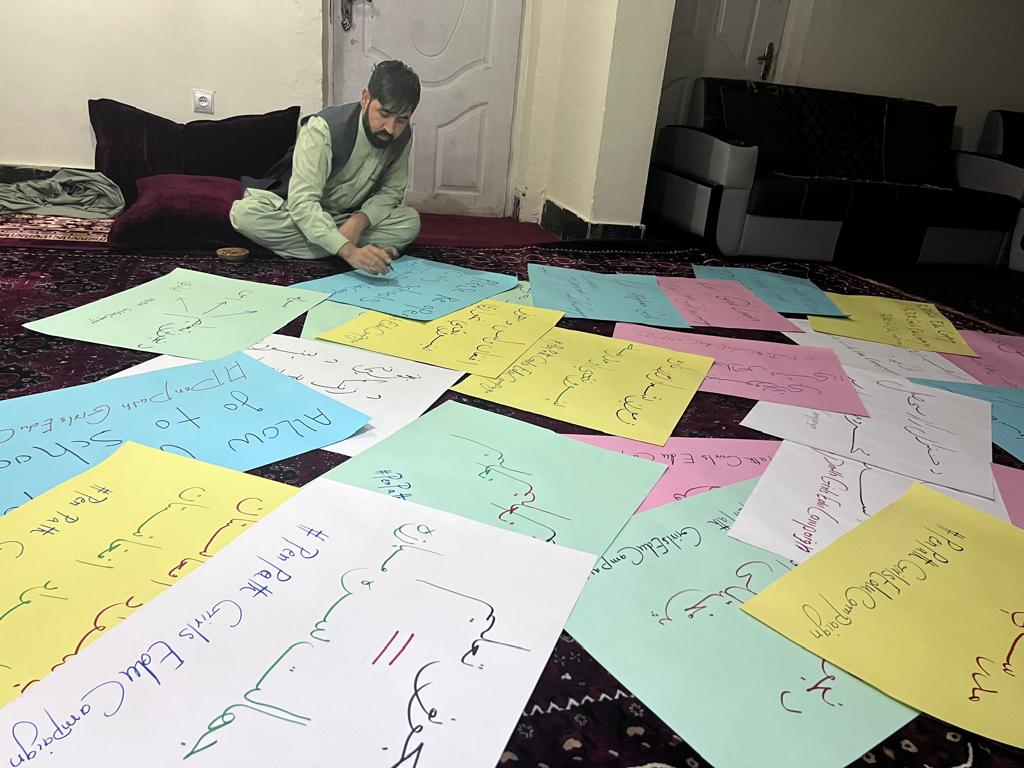The women’s rights activist abducted, jailed and tortured by the Taliban
It has been a year since a popular education activist in Afghanistan was picked up by the Taliban as he offered prayers at a mosque. His family and colleagues speak of the abuse he endured and how the Taliban’s campaign against girls’ education continues. Arpan Rai reports


A year ago on Wednesday, prominent Afghan educator Matiullah Wesa was abducted from a mosque by the Taliban, tortured and taken to a facility run by the Islamist group’s intelligence and security agency. He would spend the next seven months incarcerated.
Wesa’s only offence was becoming too popular online, with viral social media posts celebrating his door-to-door campaign promoting education for girls in the crisis-hit country. The Taliban has enforced a brutal misogynist regime in Afghanistan, banishing women and girls from schools, offices and public spaces, since taking control of the country by force in August 2021.
The Taliban finally let Wesa go in October last year, but only after a sustained campaign on his behalf by the UN, Human Rights Watch, Amnesty International and several other international institutions, as well as celebrities including Angelina Jolie.
Wesa, one of the last pro-education activists in the country, has now recovered from the physical wounds suffered in his time in Taliban detention but his fear of the country’s hardline Islamist rulers remains.
Before the Taliban took him away, Wesa was heading a grassroots collective called PenPath. Along with 3,000 aides and volunteers, he toured the length and breadth of Afghanistan with a single message: let your daughters and sons study if you want Afghanistan to prosper.
The Taliban were irked that Wesa’s focus was specifically on girls’ education. Afghanistan under the Taliban remains the only country in the world to ban girls and women from attending schools and colleges.

A source close to Wesa described how he endured various forms of physical assault during the seven months in detention, where his condition rapidly deteriorated. It took him months to fully recover from the torture.
“They told him: ‘You started negative propaganda against the Taliban because you started secret schools, protest meetings and advocated for women’s and girls schools and universities, and their human rights’,” the source, who requested anonymity for fear of a Taliban backlash, told The Independent.
The 32-year-old was treated inhumanely throughout his time in prison, the source said, reluctant to go into the details of exactly how he was tortured amid concern at the possibility of further Taliban recriminations against Wesa and his family.
“No visitor was allowed to meet Wesa. He didn’t even have a solicitor or legal representative to fight his case. He was imprisoned for simply educating girls and spreading PenPath’s campaign,” they said.
When the Taliban came to power they initially promised to operate the country differently from their first reign of terror between 1996 and 2001. But they have since offered few human rights concessions. And behind the barred doors of the Taliban’s prisons, cases of torture have been rife and continue to this day, the source said, citing Wesa’s experience.
When Wesa was arrested his brother and PenPath co-founder Ataullah Wesa was forced to flee the country. It fell to Kabul-based volunteer Nigehat Aaram, aged just 26, to take the decision overnight to cease PenPath’s activities.
“We were actually very terrified and shocked. We knew of the extreme threats of opposing the Taliban’s anti-education stance but isn’t education a global right? We expected the international community’s support in the worst-case scenario to prevent his arrest,” Aaram told The Independent over a phone call.
All governments in Afghanistan since PenPath’s inception in 2009 have encouraged and supported Wesa, she said. “The Taliban should have encouraged him as well.”

As well as opposing the group’s backward policies, Wesa’s personal popularity also clearly angered the Taliban, another volunteer said.
Hollywood star Jolie called for Wesa’s release in August last year, pushing her millions of followers to clamour for information regarding his whereabouts and safe legal representation.
“I know that you have dedicated over a decade of your life to helping Afghan children, particularly in rural areas, to have access to books and the means and the opportunity to go to school... I add my voice, with humility, to those of everyone calling for your release, so that you can continue your important work, and for the lifting of all restrictions on education for girls,” she posted on her Instagram account.
Malala Yousafzai’s father, Ziauddin Yousafzai, who has also actively campaigned for women’s right to education, called Wesa the “Bacha Khan” of Afghanistan. Bacha Khan was a freedom fighter who fought the country’s British colonial leaders for women’s rights and education.
After his arrest, however, PenPath asked all its volunteers to erase their social media presence. That silence has continued since Wesa’s release in October, as those associated with the organisation face the ever-present threat of a Taliban backlash.
“After Wesa’s arrest, Pen Path’s campaigns and almost all our activities were stopped. A year later, still the situation is the same,” said PenPath volunteer “Asma Khan” (we have changed her name to protect her identity).
In spite of all that has happened, there are some PenPath volunteers who still operate undaunted, discreetly continuing to run their missions at great risk to their lives and their families.
“We are somehow keeping around 43 secret schools with 400 teachers open, as we continue to spread our messages among village elders and rural families,” Aaram told The Independent.
“There are logistical nightmares of ferrying our books from a mobile library to these remote villages in secret but we are managing,” she said.
“The Taliban has banned us completely, but we’ll continue our online and secret schools. We will be searching for other options, some scholarships for volunteers and in touch with the international community,” she added.
But one fear haunts hundreds of Wesa’s volunteers like Aaram. “The Taliban is not going to soften towards us, or Wesa. He will face another arrest if we don’t toe the line.”
Matiullah’s arrest and the continued intimidation of PenPath are seen as part of a bigger plan by the hardline regime to keep women out of education and the workforce. “This confirms the Taliban is never going to open schools for girls and women,” Aaram says.
Join our commenting forum
Join thought-provoking conversations, follow other Independent readers and see their replies
Comments
Bookmark popover
Removed from bookmarks